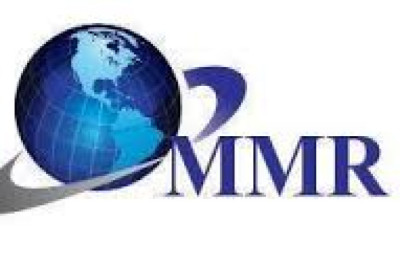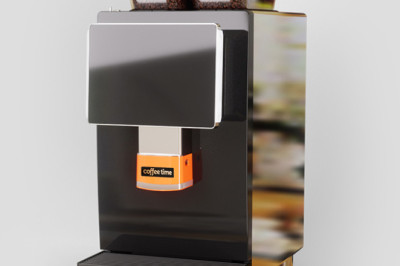views
In today's digital age, data is king. From small businesses to large enterprises, managing and storing vast amounts of data is crucial. Yet, many struggle with clunky storage solutions that don't offer flexibility or security. Enter Network Attached Storage (NAS)—a game-changer in the realm of data handling. If you've been wondering "what is network attached storage," you're in the right place. This guide will walk you through how NAS can transform your data management practices, providing you with a more efficient, secure, and accessible solution.
What Exactly is Network Attached Storage?
Simply put, Network Attached Storage (NAS) is a specialized device that provides centralized data storage accessible over a network. Unlike traditional storage solutions that connect directly to a computer, NAS units connect to your network, allowing multiple devices to access the data.
Understanding the Basics
At its core, a NAS device consists of one or more hard drives housed within a single chassis. These drives are connected to your network via Ethernet, making it easy for multiple users and devices to store and retrieve data.
How Does NAS Differ from Traditional Storage?
Traditional storage solutions like external hard drives and USB thumb drives require physical connection to a computer. NAS, on the other hand, is always online, allowing for real-time data access and sharing across your entire network.
Why is NAS a Game-Changer?
One of the most significant advantages of NAS is its ability to centralize data. This makes it easier to manage, secure, and back up your files. With NAS, you can also scale your storage capabilities, adding more drives as needed without disrupting your network.
Key Features of NAS that Transform Data Handling
NAS offers a host of features that make it an indispensable tool for modern data management. From enhanced security to seamless data sharing, here are some of the standout capabilities.
Enhanced Data Security
Security is a top concern for anyone handling sensitive information. NAS devices come equipped with advanced security features like encryption, user authentication, and access controls, ensuring your data is protected from unauthorized access.
Seamless Data Sharing
One of the primary reasons businesses opt for NAS is its ability to facilitate seamless data sharing. Whether you're working in an office or remotely, NAS allows for quick and easy file sharing among team members.
Automated Backups
Data loss can be catastrophic. NAS devices offer automated backup solutions, ensuring your data is regularly saved and easily recoverable. This feature is particularly useful for businesses that need to maintain compliance with data retention policies.
Advantages of Using NAS Over Other Solutions
Choosing the right storage solution can be overwhelming, but NAS stands out for several compelling reasons. Here are some advantages that make it a better choice compared to traditional storage options.
Scalability
Unlike fixed-capacity storage solutions, NAS is highly scalable. You can start with a smaller setup and expand as your data needs grow. This flexibility makes NAS a cost-effective solution for businesses of all sizes.
Cost-Effectiveness
While the initial investment for a NAS setup might seem high, the long-term benefits far outweigh the costs. NAS reduces the need for multiple storage devices and minimizes maintenance expenses, offering a more economical solution in the long run.
Ease of Use
NAS devices are designed with user-friendliness in mind. Most units come with intuitive interfaces that make it easy to set up and manage your storage. Even those who aren't tech-savvy can quickly get a NAS system up and running.
How to Choose the Right NAS for Your Needs?
With so many options available, selecting the right NAS can be challenging. Here are some factors to consider when making your choice.
Storage Capacity
Assess your current and future storage needs to determine the capacity you require. Most NAS devices offer expandable storage, so choose one that allows for easy upgrades.
Performance
Performance is key, especially if you plan to use NAS for data-intensive tasks. Look for devices with high-speed processors and ample RAM to ensure smooth operation.
Additional Features
Consider what additional features you might need, such as RAID support, multiple Ethernet ports, or cloud integration. These can significantly enhance the functionality and reliability of your NAS setup.
Setting Up Your NAS: A Step-by-Step Guide
Setting up a NAS might seem daunting, but it's simpler than you think. Follow these steps to get your NAS up and running.
Initial Setup
Start by connecting your NAS device to your network using an Ethernet cable. Power it on and follow the manufacturer's instructions to complete the initial setup.
Configuring User Access
Next, set up user accounts and permissions. This ensures that only authorized individuals can access specific data, enhancing security.
Installing Applications
Most NAS devices allow you to install additional applications to extend their functionality. From media servers to backup solutions, choose the apps that best suit your needs.
Common Challenges and How to Overcome Them?
While NAS offers numerous benefits, it's not without its challenges. Here are some common issues you might encounter and how to address them.
Network Connectivity
Network issues can disrupt access to your NAS. Ensure your NAS is connected to a reliable network and consider using a dedicated Ethernet cable for better performance.
Data Recovery
In the event of data loss, having a robust backup solution is crucial. Regularly backup your NAS to an external device or cloud service to ensure data is recoverable.
Firmware Updates
Keeping your NAS firmware up to date is essential for optimal performance and security. Regularly check for updates and install them as needed.
Future Trends in NAS Technology
The world of NAS is continually evolving, with new advancements on the horizon. Here's what to expect in the coming years.
Increased Cloud Integration
Hybrid NAS solutions that combine local and cloud storage are becoming increasingly popular. This provides the best of both worlds, offering local access speed with the flexibility of cloud storage.
Enhanced AI Capabilities
Future enterprise NAS devices are expected to incorporate AI for better data management and security. From predictive maintenance to intelligent data categorization, AI will play a significant role.
Improved Energy Efficiency
As sustainability becomes a priority, NAS manufacturers are focusing on creating more energy-efficient devices. Look for eco-friendly options that reduce power consumption without compromising performance.
Real-World Case Studies
Nothing illustrates the power of NAS better than real-world examples. Here are a few case studies showcasing how businesses have successfully implemented NAS.
Case Study 1
A small marketing firm struggled with data management and collaboration. After implementing NAS, they saw a 50% increase in productivity and significantly improved data security.
Case Study 2
A local clinic needed a secure way to store patient records. NAS provided a cost-effective solution that met all regulatory requirements and improved data accessibility for healthcare providers.
Conclusion
Network Attached Storage is not just a storage solution; it's a powerful tool that can revolutionize how businesses handle data. From enhanced security to seamless data sharing and scalability, the benefits of NAS are undeniable. If you've been considering how to improve your data management practices, now is the time to explore the power of NAS. For more insights and personalized recommendations, feel free to reach out to our team of experts.











